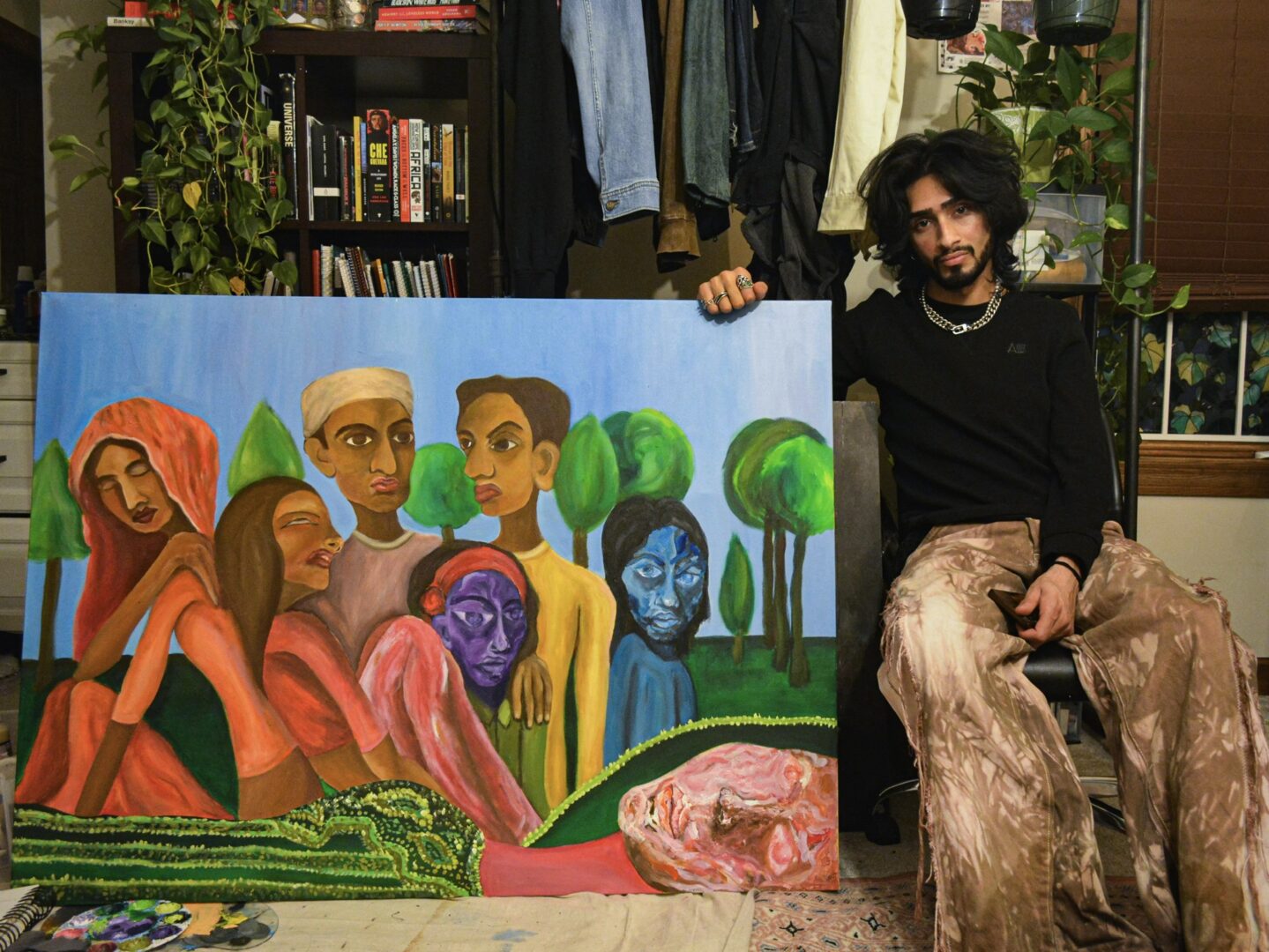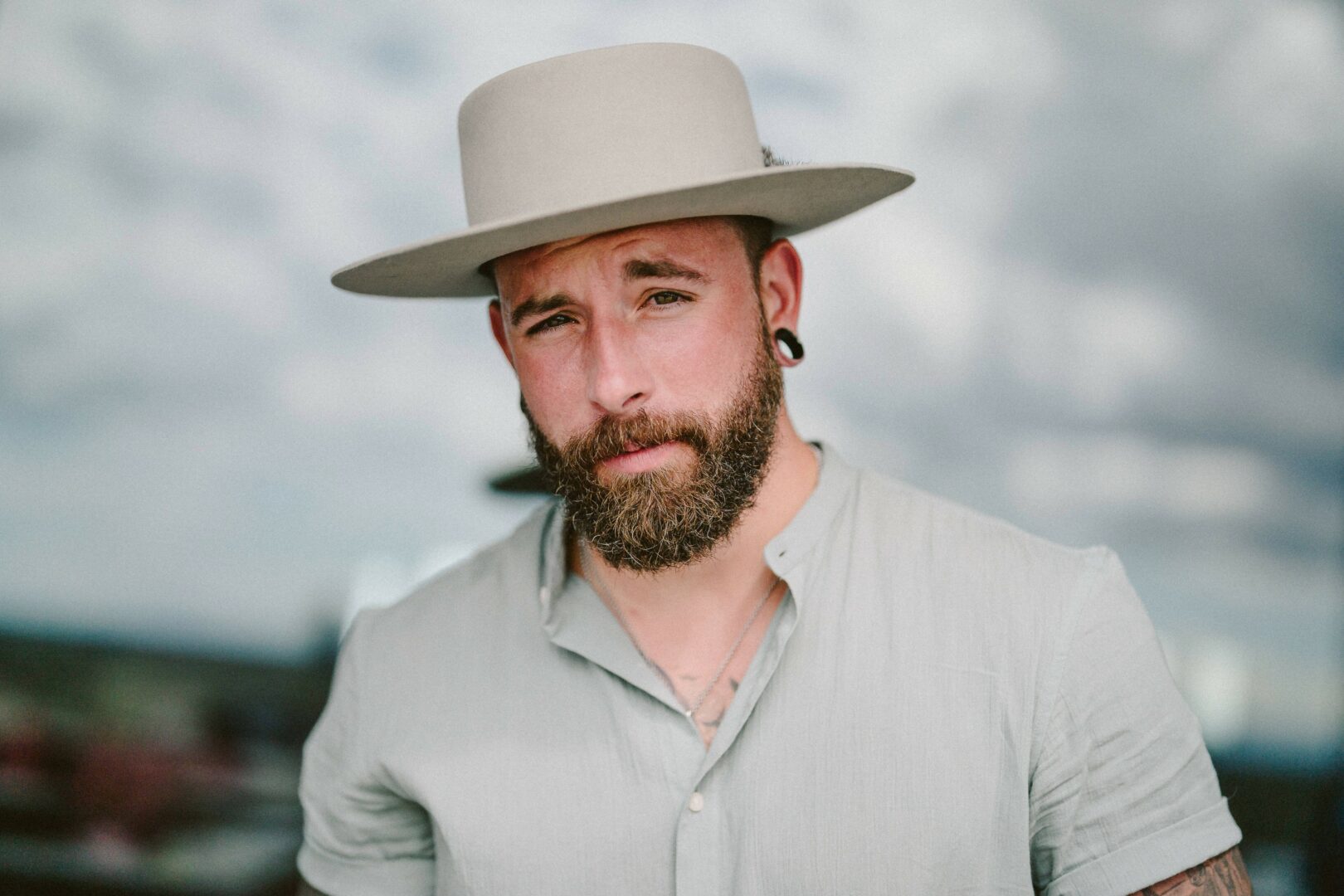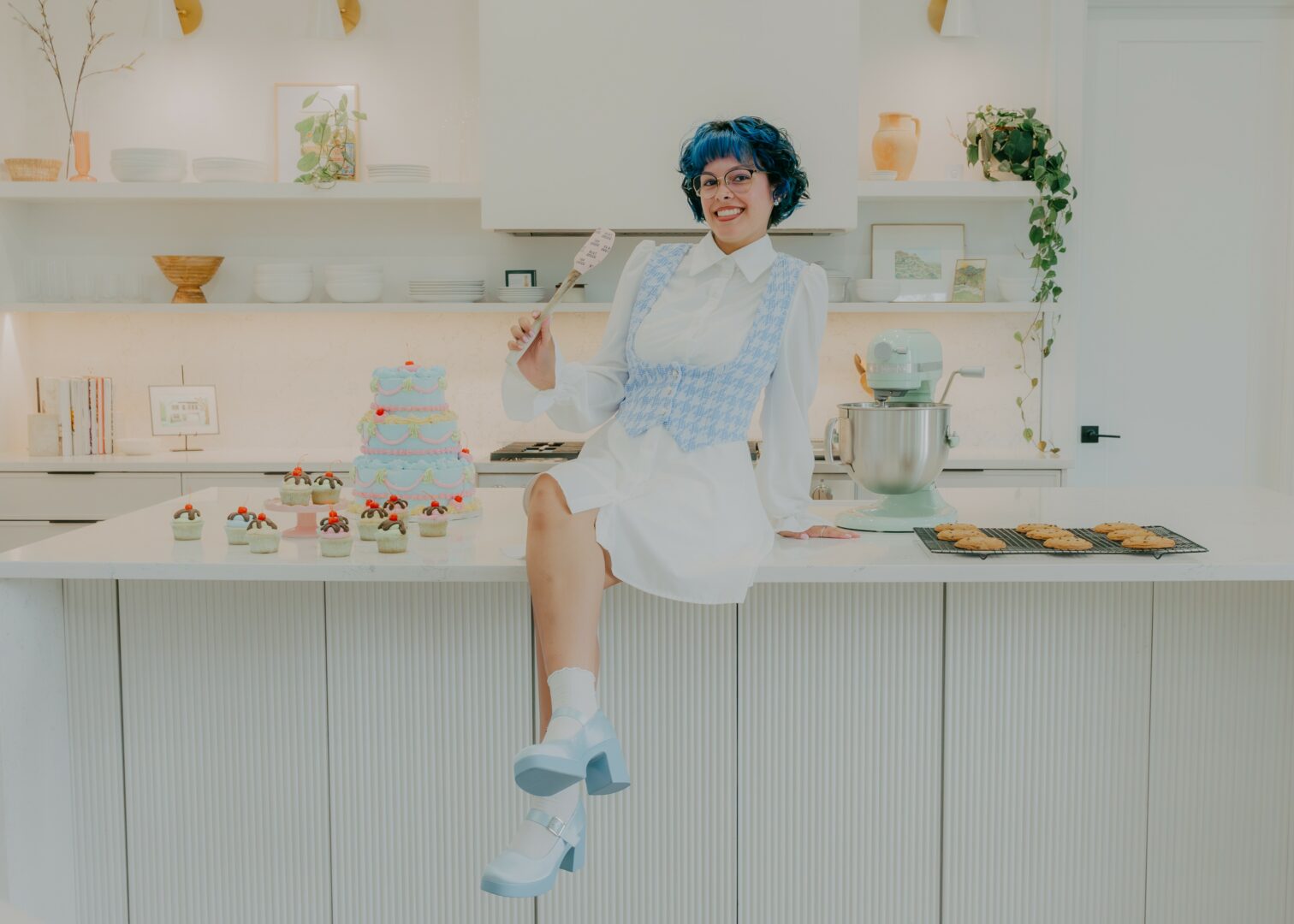We recently connected with Zain Majeed and have shared our conversation below.
Zain, first a big thank you for taking the time to share your thoughts and insights with us today. I’m sure many of our readers will benefit from your wisdom, and one of the areas where we think your insight might be most helpful is related to imposter syndrome. Imposter syndrome is holding so many people back from reaching their true and highest potential and so we’d love to hear about your journey and how you overcame imposter syndrome.
Personally, I view imposter syndrome as a lifelong battle. The very core of my being is to overthink at every step. Rather than suppressing thoughts of doubt and not belonging, I’ve taken time to work through where those feelings derive from. As a child, I was extremely artistic, constantly drawing and coloring to no end. But that artistry faded away in my adolescence as opinions from others made me believe that art wasn’t a practical path to pursue. For years, I didn’t even think to pick up a pencil and draw something, primarily to conform to what I thought was acceptable. Often, we internally create caricatures of ourselves to fit certain external molds, undermining who we really are. As I peel off that mask and break down the guards I’ve put in place to meet those outside expectations, it’s just me and my purpose to be a creative.
While I no longer doubt my purpose, I still struggle with accepting what I make. Something that’s helped me is separating myself from my creative works. I try to see them as standing on their own: no focus on the artist, just the art alone. Taking in what that piece represents, the effort and energy poured into making it, and the emotions that connect me to it. Similarly, as I become a more spiritual and religious person, I’ve stopped viewing myself based on what I can create, and rather, by the ability I have been gifted to create through my creator. As I keep these things in mind, I feel more comfortable with accepting that my works are serving the purpose they are truly intended to.
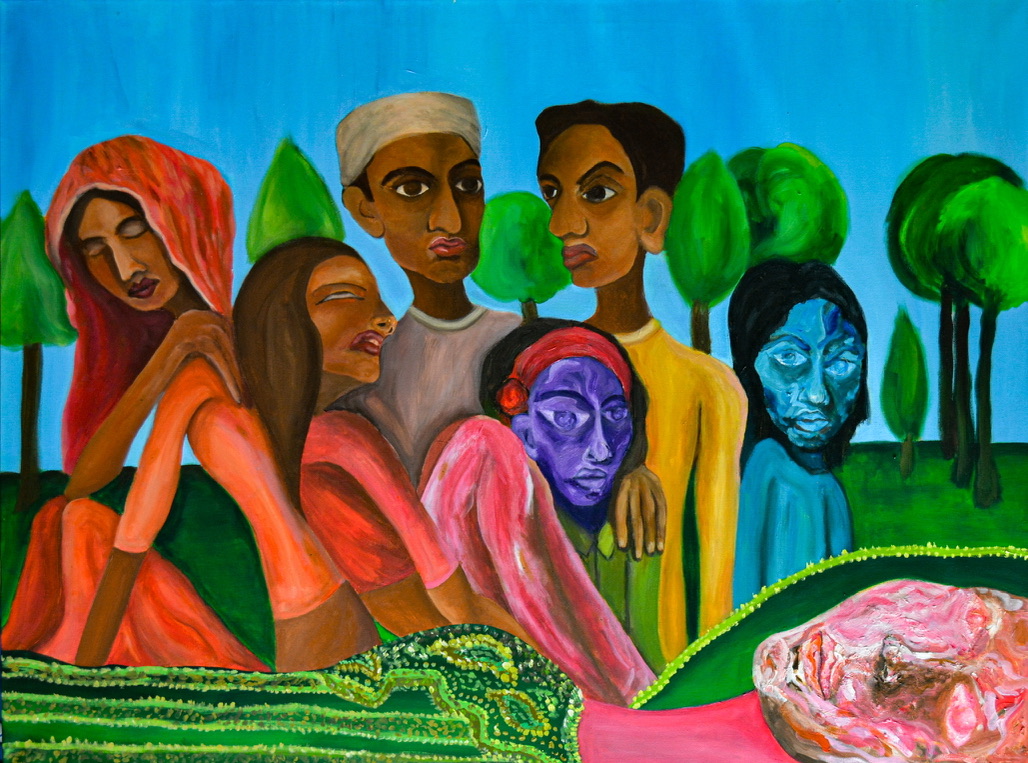
Thanks, so before we move on maybe you can share a bit more about yourself?
I’m an artist and fashion designer. My medium for art is currently drawing and painting and my work in fashion has been designing jeans under my brand Ugly Image. The most exciting aspect of my work is having the opportunity to turn abstract concepts into visible and tangible creations. But nothing can top the potential of creating something that resonates with someone. Every moment I interact with someone relating to how they connect to my work is a reminder of the beauty and necessity of art. I spent the last year becoming more comfortable with selling off and exhibiting my work. This past year, I was a part of several exhibitions, namely at the Bridgeport Art Center, and the University of Chicago. Usually, you can find me vending off works at various art-based mutual aid drives.
This year will be focusing on expanding the Ugly Image brand. I spent a portion of 2024 curating several garments to debut, while also taking time to experiment with different types of creative directions. I anticipate that this spring will be the official rollout of these works, as well as formally opening up to commissions for both art and fashion.
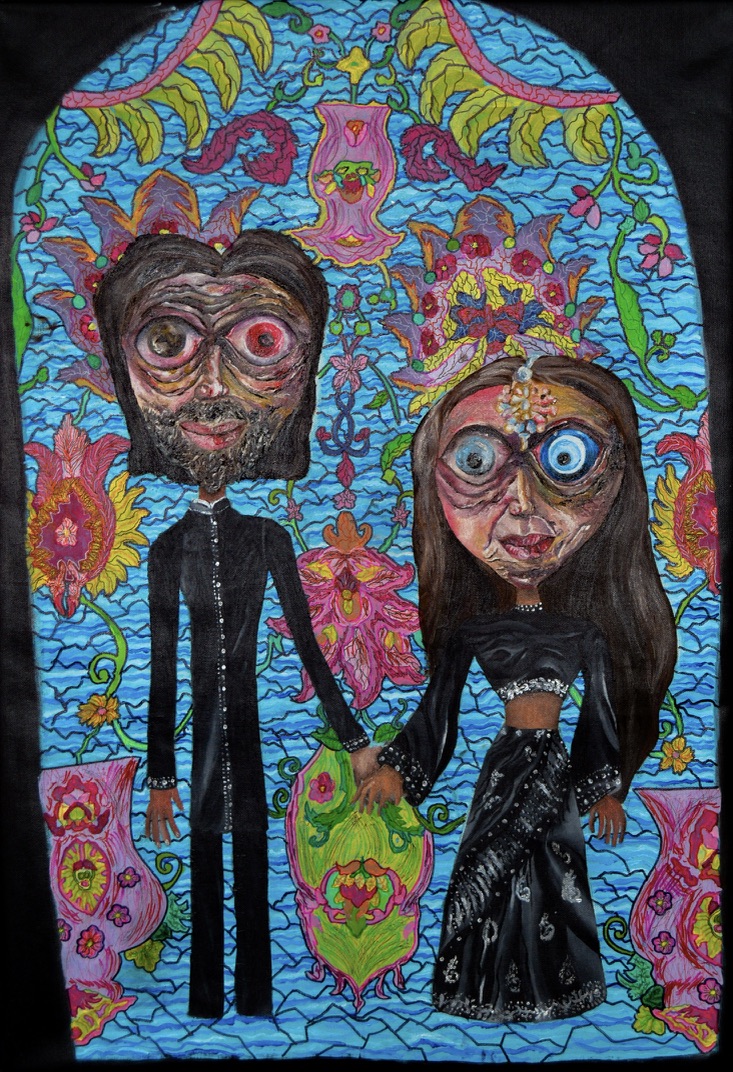
Looking back, what do you think were the three qualities, skills, or areas of knowledge that were most impactful in your journey? What advice do you have for folks who are early in their journey in terms of how they can best develop or improve on these?
Community, humility, and direction have been imperative on this journey. I feel that each of these aspects brings out the most vital elements of me as a human and artist.
Art is an extension of the community. It speaks a story of familiarity and understanding. Even the most personal of works still can convey the overarching feelings of the community. Focusing on individualized approaches hurts the ability to connect with one another. As human beings, it’s in our nature to rely on each other; it’s not a detriment as we can be made to believe. I view creative work as cultural work: art that teaches and nourishes the surrounding environment while assuring the members of their visibility and reminding them of their humanity.
Our humility is what keeps us human, and my identity with humanity is what drives my creative process. The ability to extend compassion opens a world of emotions to contend with. While not every instance of doing so has to be some kind of prolific emotional experience, it nonetheless opens the door to new perspectives and ideas. We can even do this with ourselves: choosing to be kinder and patient with how I regard myself reminds me that I’m not a machine, just here to produce and die. I have a life that extends beyond just my craft, and by acknowledging and embracing that, I’m able to pour more into my work.
Having direction makes the creative process much more manageable. My creative acumen can be extremely overwhelming at times, as I can have a free flow of varying ideas and concepts. Keeping the plot in check keeps the focus in check too. As I have new ideas, I jot them down and keep them to the side, though sometimes I’ll be struck with ideas that take priority over whatever I’m doing. I suppose it’s about finding that perfect balance. What has helped me more than anything with that is answering why I would make something rather than how. The “why?” makes me contend with the relevance and purpose of the idea. This way, I’m able to better establish what is in line with my intentions.
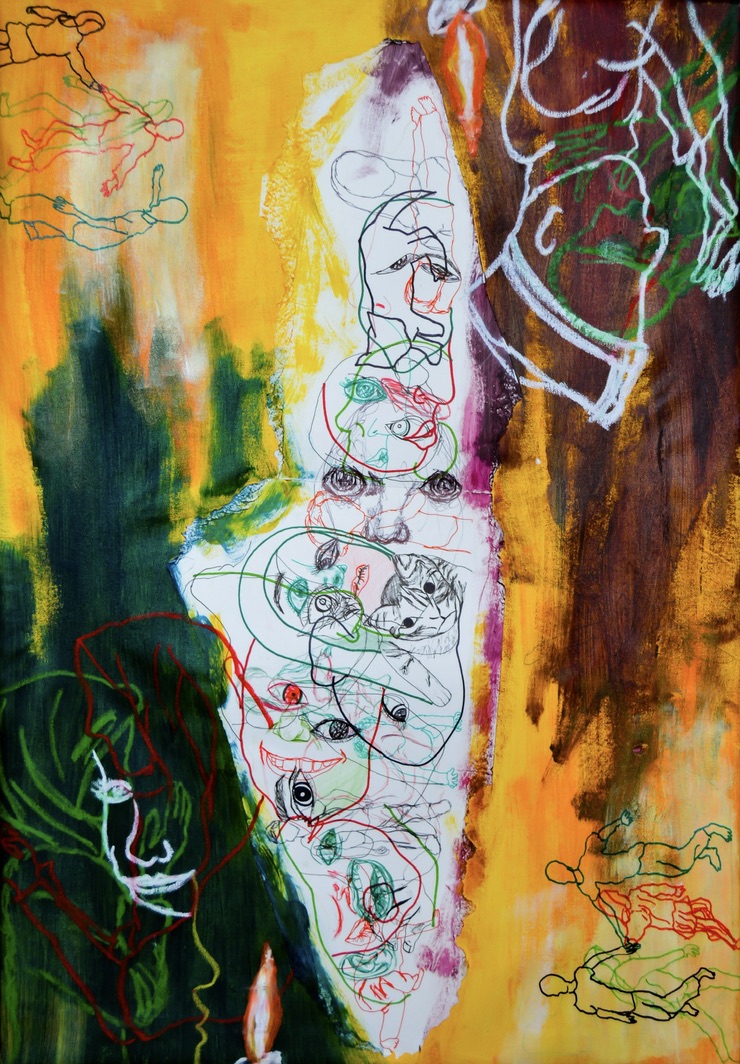
As we end our chat, is there a book you can leave people with that’s been meaningful to you and your development?
Frantz Fanon’s Wretched of the Earth has been pivotal in structuring my artistic outlook. It’s in line with much of the emotional direction of my art, which gives me a solid foundation for what ideas and messages I want to present. As an artist with a strong focus on decolonial principles, I must have a deep understanding of what I want to accomplish with my art. Lately, much of my work has spoken to the effects of colonialism, as well as the efforts in combating empirical reign.
An element that resonated with me was Fanon’s consideration of the conscious “Everything can be explained to the people, on the single condition that you want them to understand”. In a world convoluted with disinformation and propaganda, I find it important to make my art accessible regarding its message and perception. That goes beyond what people want to hear: it has to come from a place of what needs to be heard from my work, and doing it in a way that people will be receptive to it. It’s merely pandering to my ego if I put out work that’s deliberately difficult to understand; that would make my approach self-serving, contradicting my goals of building a communal connection.
Contact Info:
- Website: https://www.zainmajeed.com/
- Instagram: https://www.instagram.com/tafkaz_/
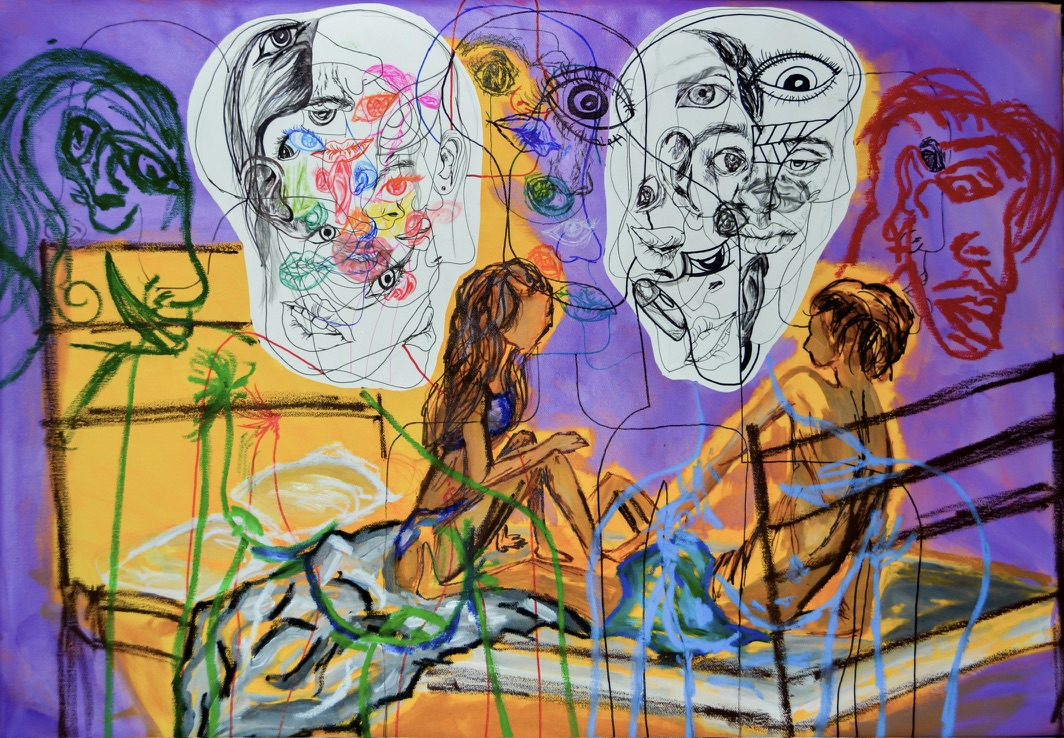
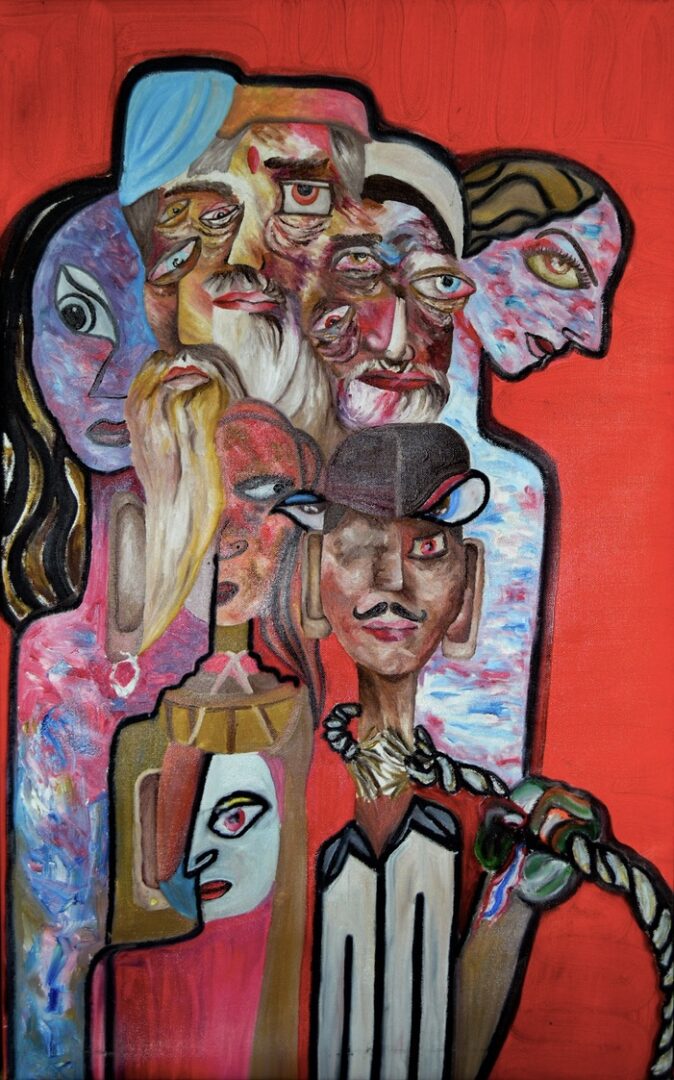
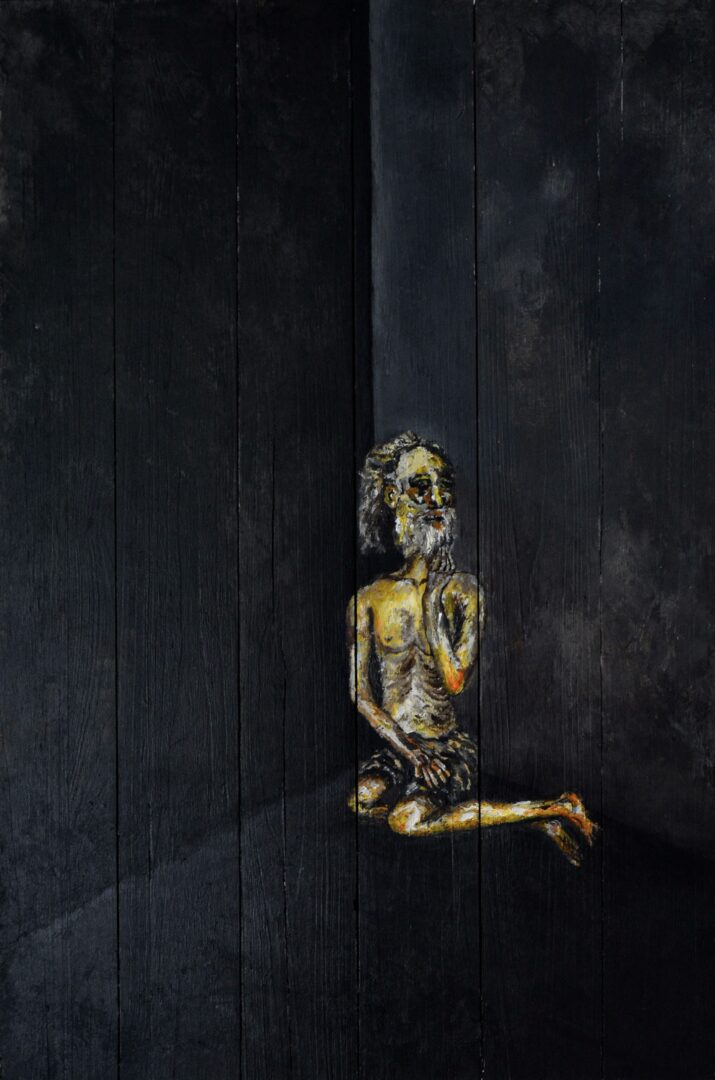
so if you or someone you know deserves recognition please let us know here.

